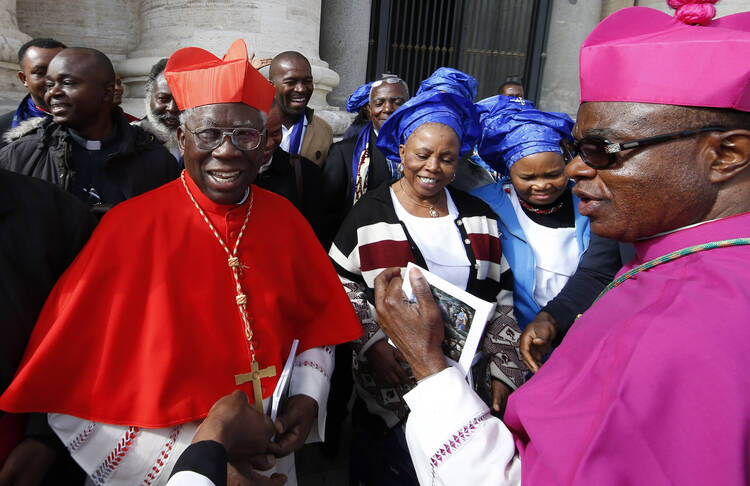The Christian family is proclaimed in Catholic teaching as “the domestic church.” How fitting then that after the recent synod Catholic families can be more closely modelled on Vatican II’s more open vision of the church. Families too can be inspired to be more accepting, inclusive, just and personally responsive to individual conscience.
Yet it is no secret that opposition to changing any teachings in the church exists among many of its members. (You can read all about it on the front pages of the New York Times.) Some traditionalists in the church resist Pope Francis’s efforts to enact changes in the spirit of Vatican II. Such measures are not seen as Spirit-inspired reforms but viewed by some as sell outs to the world—“world” as in the world, the flesh and the devil, not as in God so loved the world. But three points need to be made to the fearful.
First, changes made by Vatican II were not only about opening the church to the modern world (aggiornomento,) but just as crucially about renewing the church’s Christocentric mission. The deepening and development of Christian theological self-understanding embraced in Vatican II (ressourcement) is a tremendous accomplishment. It amounts to a deeply conserving renewal of the faith. The spiritual impetus and energy of the council is still emerging, with Pope Francis as its servant of the servants.
Second, Francis is the most traditional of Christians. He is completely imbued with Christ’s words, Christ’s example, scriptural teaching, Gospel joy and trust in the Holy Spirit. He embodies Christ for millions who are responding to his humility and merciful benevolence.
Third, traditionalists can be enlightened by new historical analyses of the relations between the church and the world that produced our secular age. Philosophers like Charles Taylor along with other scholars now credit Christianity as the source of the Enlightenment’s ideals of equality, human rights, conscience, freedom and obligation to relieve suffering. The equal value of each individual created in God’s image and the universal responsibility of a free conscience are Christian innovations that did battle with the Roman Empire’s worldview. Peace, forgiveness and the love commandment challenged the reign of violence, power and privilege. Christians once turned the world upside down.
Unfortunately in the course of human history, Christian values were often distorted, coopted and overthrown by powerful regimes. The church itself often became allied with immoral forces in power. Only after centuries of conflict and intellectual development did the struggle for Christian values obtain some common cultural agreements, such as the Universal Declaration of Human Rights. In many of these struggles those on the side of core Christian values might have to oppose established powers, including the church. Present day popes have apologized for sins and failings of the church in the past.
Once mindful of this history, Catholic traditionalists can begin to be less wary and resistant to proposed changes. Too many “secular” values are of Christian parentage. Resistors to Vatican II and the developments at the synod can better acknowledge their separated offspring coming home at last.








